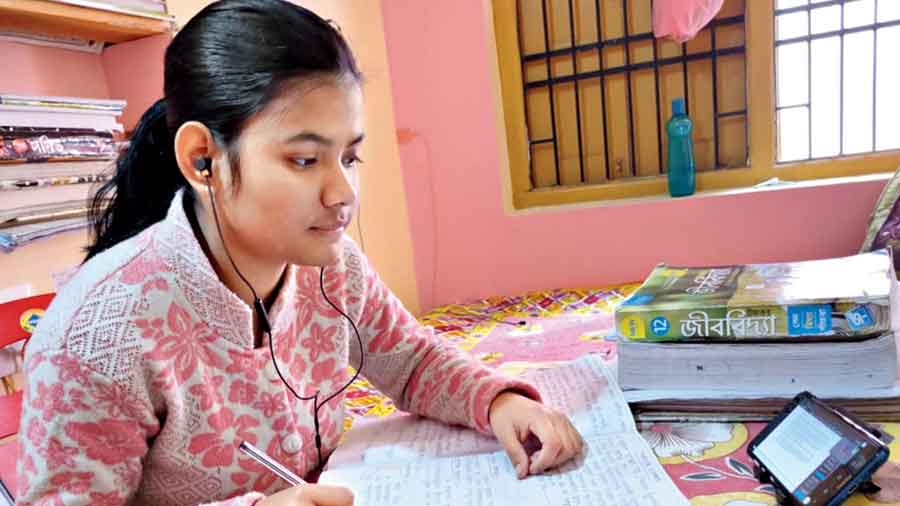Class XII student Priya Das could barely attend a few online classes in a month because she shared a device with her brother, an undergraduate student.
Class XI student Barsha Sarkar had to borrow a phone from a neighbour to take down “tasks” that were sent by her teachers and then again to submit the assignments.
Girls, in classes XI and XII, many of whom scored stellar marks in Madhyamik were staring at uncertainty in their school lives because their parents could not afford a smartphone just for them.
But they got a helping hand.
A few months ago NGO Prayatna Foundation, in association with South Dinajpur district police, identified 100 girls in and around Balurghat and gave them a device with data recharge to enable them to attend online classes.
The girls are mostly daughters of daily wage earners, farmers, rickshaw pullers, some of whom migrate to the city for better pay.
For most of these girls school is their only access to education.
But the disruption brought about by the pandemic and aggravated by lack of devices, many girls were staring at a future far removed from the path they were fighting since childhood.
“My father is a toto driver and we had one smartphone that my brother and I shared. I could not attend classes because my elder brother who is in college needed to attend classes also,” said Priya, who scored 91 per cent in Madhyamik.
“Even before the pandemic our woes were acute. My brother had to give up science because of a financial crisis. The pandemic increased our problems manifold and I could not ask my father for another device.”
Barsha would request people in her neighbourhood to lend her their phone.
“The teachers would send us work on their phone and I would take it down. Now at least I can attend the classes, clear my doubts in class and also see the task as soon as it is sent,” said the daughter of a father.
The devices were given in October. The benefactors believe they would need the devices even when schools reopen. “E-learning is here to stay and if the students do not have access to devices then they will be deprived. We wanted to go to remote places because in the cities students still get help but not so in the villages,” said Bishnu Bajaj, the co-founder of Prayatna Foundation.
Bajaj said that the district police identified the students. The assessment was made on the basis of their needs and merit.
“We are in touch with these girls and we had initially recharged their phones for three months. We are extending it for another three months,” said Archana Roy, the programme manager of the foundation.
